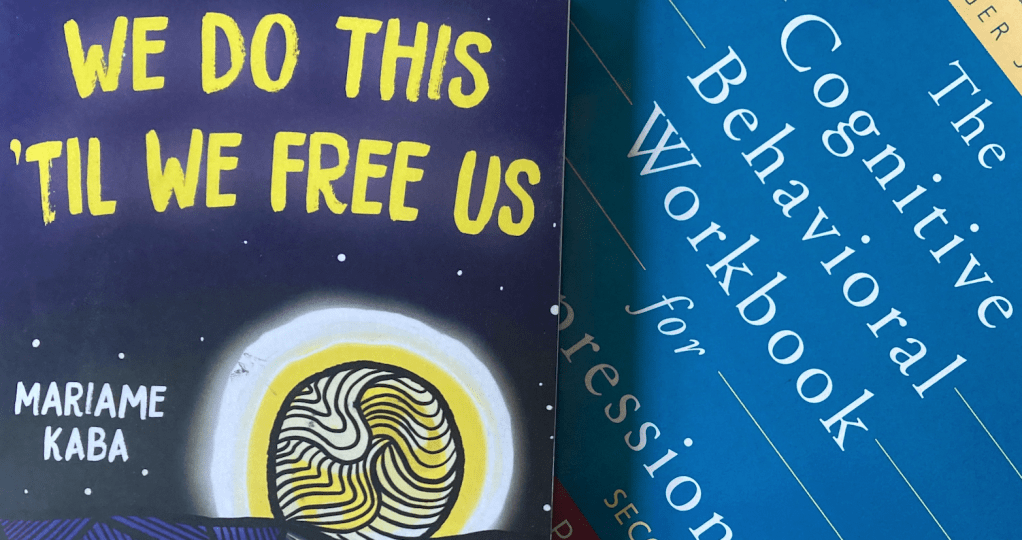“Hope is not an emotion…hope is not optimism.”
– Mariame Kaba, We Do This ‘Til We Free Us
“Optimism is a state of mind in which you are hopeful that things will turn out well.”
– William J. Knaus, Ed D, The Cognitive Behavioral Workbook for Depression.
“In the world we live in, it is easy to feel a sense of hopelessness, that everything is bad all the time, that nothing is going to change ever…I understand why people feel that way. I just choose differently. I choose to think in a different way, and I choose to act in a different way.”
– Mariame Kaba, We Do This ‘Til We Free Us
“Unfortunate events happen, but the fatalistic resignation of hopelessness thinking is optional.”
– William J. Knaus, Ed D, The Cognitive Behavioral Workbook for Depression.

I suppose that anyone who occupies his long summer days reading Mariame Kaba and working his way through a self-help book to combat depression is, by definition, a man of hope.
Ms. Kaba’s insights into social justice and prison abolition are generous and humane. She commands us to action yet simultaneously recognizes that the timeframe of equity is measured in decades and generations.
As for the self-help, depression is my longest and darkest acquaintance. A foe so comfortable it too often feels like a friend. It feeds on me, as on so many others, during the disconnection and isolation of pandemic. But have you tried to get an appointment with a living breathing therapist lately? That is hopeless.

I first began seriously thinking about hope during my time in Haiti. How people who possessed so little—by our measure—seemed altogether more satisfied than most Americans. Haitian joie de vivre is rooted in an odd combination of resilience and dependence. Life in Haiti is hard. No one is presumptive enough to think he can make it on his own. Yet, Haitians are resourceful in crafting lives on an over-crowded, thin-soiled, institutionally bereft island. We Americans are their polar opposite. Quick and fierce in proclaiming our independence even as we navigate a thoroughly interdependent society.
The laughing and singing I heard each evening as I walked home in Haiti got me thinking, and reading, about hope. At a first order of magnitude, hope is indirectly proportional to affluence. The more you have, the more you have to lose, the more you’re annoyed by inconvenience, the less satisfied you become, the less goodwill you harbor toward the future. The highest levels of hope on this earth are reported in Africa. I don’t know the science behind that declaration, but I endorse its validity. Hope is nourishing, and it’s free.

Nearly ten years later, during pandemic summer 2.0, I encounter the idea: hope is a discipline; and its corollary: hopelessness thinking is optional. I’ve been running these notions round my head because, upon first absorption, they don’t jive. How can hope (all light and spirit) be a discipline (all serious rigor)? How can ruminating on the intractable problems of our era and the demons in our private lives be optional?
By choice. Our thoughts, our feelings, our physical health feed upon and reinforce each other. When we choose hope, it reframes our perspective. We acknowledge our despair, our limitations. We accept that our influence on this planet is tiny and short-lived. Yet our presence, our influence, still has meaning.
So, we seek out the beneficent. We lead with trust. At first we must force ourselves to thinking that’s so contrary to our cynical society. Until hope becomes a pattern. Then a disciple. And we emerge into a more positive way of being.
